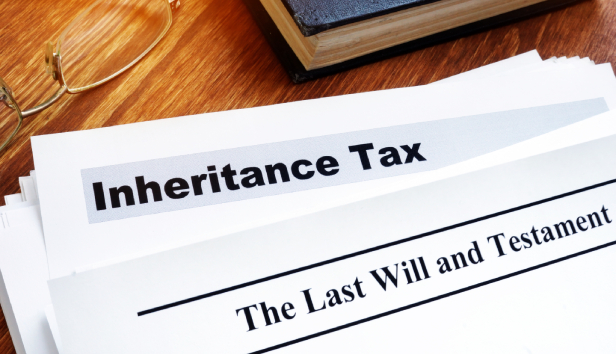
Divorcing in later life is on the rise. That’s despite there being the lowest number of total divorces since 1971 in 2022, and civil partnership dissolutions hitting their smallest number since 2010.
“Over the last 30 years, the number of divorces between men and women aged 60 and over has increased by an astounding 85%, despite an overall decline in divorce rates,” says Hayley McCormack, Partner at law firm Roythornes Solicitors.
Going through a divorce or dissolution of a civil partnership* can, obviously, be an incredibly stressful process. It's critical to give yourself time and space to manage the situation at your own pace and look after your mental health in any way you can.
While divorce can be an overwhelming process, taking proper legal advice to ensure your settlement is fair remains crucial.
One of the most difficult challenges will be working out what to do with your home and mortgage. Often this will be determined by your financial situation, solicitors and the courts, rather than personal preference.
It’s important to understand what might happen and how each potential scenario could affect you and your family, and your legal advisor will help you make the right choices.
If you’re not feeling clear about which options might be available to you, and what they could mean for your future, we’ve spoken to mortgage and legal experts to help explain the various scenarios you may face.
Selling the property can be the least complicated option for you and your ex-partner. You’ll pay off the mortgage (if you still have one) and can split the remaining funds from the sale. But don’t automatically assume you’ll get 50% of the assets.
“It is best to speak to your solicitor and once you have provided financial disclosure, they will be able to advise on what a fair settlement would look like and how much you could expect to walk away with,” says Theresa Wright, Family Solicitor at Britton & Time.
In some examples, one partner will get a greater share of the property in lieu of receiving a chunk of the other partner’s pension.
However, this won’t always be the case if they’re in a stronger financial position, says Wright, and warns that it can have implications later in life when it comes to retirement finances.
She adds: “With regards to a greater share in the property, this is dependent upon the age of the parties and the resources available.
“Some parties prefer to ‘pension offset’ so they receive the benefit now rather than once they reach retirement. The issue may then arise that the person who did not benefit from a pension share may be in a weaker financial position on retirement.”
If you’re considering this as an option, make sure you’ve spoken to your legal adviser to understand the long-term financial implications of not taking a share of your ex-partner's pension, and be given confidence that assets have been divided fairly.
Selling up could help you buy somewhere else separately, but you’ll need to consider the affordability of such a step.
Downsizing is the most obvious choice, but also think about how your needs might change in the coming years. It’s also key that you look to improve your home where possible, to ensure you get the best price even if you feel under pressure to sell quickly.
- 7 tricks to add thousands to your home’s value
It’s sensible to speak to a broker about your mortgage options in later life. Gerard Cumming, Mortgage & Protection Adviser at One Four Nine Group, points out the landscape has changed, and you may be able to extend it further past State Pension age:
“Now when we look at residential mortgages, we are seeing more lenders look at allowing mortgages to run to age 75, and some even to age 80, so it may still be possible for you to continue with the type of residential mortgage that you may already be familiar with,” she says.
If not, there are alternatives, as Richard Dana, Founder and CEO of mortgage broker Tembo, explains: “There are specialist mortgage lenders who will take into account income from pensions and investments as well as earned income.
“There are also options such as retirement interest-only mortgages if you can’t quite afford capital repayment [where you eventually pay off the mortgage, rather than just servicing the interest] but may wish to downsize at a later date.”
If one of you wants to remain in the house, particularly if you have children still living at home, it might be possible to buy out your ex.
Some lenders will let you transfer a joint mortgage into one name – although there are signs this is becoming less common.
“You will only be able to transfer over the mortgage into your name if the lender is certain that you can afford the mortgage payments on your own,” says Elena Todorova, Director at mortgage broker SPF Private Clients.
“It will run an affordability check to see whether this is the case.”
David Hollingworth, Associate Director of Communications at London & Country Mortgages, adds that it’s possible your ex-partner will need to receive some extra money from the property to be able to buy their own place.
“For the other partner to move on there is likely to be a need for some equity to be released as well as their half of the mortgage to be bought out,” he says.
You could release some of this equity by remortgaging, and putting the lending in your name only. However, if it’s been many years since your last remortgage, this could involve borrowing more at the current higher interest rates, making it more expensive.
If this is something you’re considering, it’s worth talking it through with your lender. It may be willing to give you a payment holiday while you sort out your finances, although there’s no obligation for it to do so.
Alternatively, a mortgage broker could help you explore other possibilities, as Dana explains: “Depending on your personal circumstances, if you are short on affordability, you could look at a joint borrower, sole proprietor mortgage.
“This is where family members (such as parents/children/siblings) could join the mortgage but not be owners of the property, to help you out while you are short on affordability immediately after the divorce [or dissolution].”
While you’re making any choices, you and your ex-partner must keep paying the mortgage. You’ll both be liable for the debt and if you miss payments, you could damage your credit score, making it difficult to get any future lending.
.jpg?sc=max&mw=800&h=450&la=en&h=731&w=1300&hash=9FF9D60B81DC137BBD04E5D6527BE717)
This option could be used if you want to retain the home but can’t afford to remortgage alone, or if you’re close to paying off the mortgage – but, again, this can be complicated so take advice first.
In many cases, solicitors will seek a situation with no financial ties, says Wright. “It is not conducive to keep your ex-partner on the mortgage as this would not achieve a clean break.
“There are situations where one of the parties may not be able to take on the mortgage on their own and so this is the only resort.
“If this is the case, there is the option to include a ‘Mesher Order’ [a deferred sale] in your financial order. This is where the partner stays on the property and/or mortgage until a triggering event.”
These events are commonly things like the youngest child turning 18 or finishing full-time education, or it might just be a fixed number of years.
Another challenge is that your ex-partner might not be able to get a mortgage to buy a new place and would be forced to rent.
Hollingworth warns: “This option will have implications for what the ex-partner will be able to borrow, as any new mortgage lender will take account of the mortgage liability when deciding how much they can afford to borrow on a new property.”
Another possibility is that the partner moving out keeps a stake in the property, meaning they’d get a percentage of the proceeds when it was eventually sold. But again, it will only work in certain circumstances.
Wright says: “If one of the parties would not be able to afford to buy a house after the proceedings, keeping the shared house may be their only option. This would again be a situation where a Mesher Order may be appropriate.”
Hollingworth adds: “The mortgage lender will need to be happy with the approach though, so mortgage advice may be required alongside the legal discussion.”
Even if you’re not on the title deeds, you may still have a claim over the property, as Joanna Farrands, Partner in Moore Barlow’s Family Law team, explains:
“If you are married [or in a civil partnership] then the house is a matrimonial asset regardless of whose name it is in and what the contributions to it were.
“That said, if the marriage or civil partnership breaks down and you are not on the title deeds then it is important to register a ‘home rights notice’ at the Land Registry so that you cannot be evicted from the property before everything is resolved.”
If you’re still navigating your way through a split and aren’t sure what to do, getting professional advice should always be a priority. This means you can fully understand the situation and what rights you might have.
While such advice might be costly, it’s almost always a necessary expense to ensure things are handled as smoothly as possible.
However, if you’re finding costs an issue, you can also get advice by speaking to a charity such as StepChange or Citizens Advice.
You could also use a benefits calculator to see if you might be eligible for financial support to boost your income and mortgage affordability.
To find out more about what support you may be entitled to, you can go to the Independent Age website or call its free helpline on 0800 319 6789, or use the Turn2Us benefits calculator.


Don’t let a generous gift turn into a tax trap for your family – here’s what you need to know.



.jpg?la=en&h=476&w=1440&hash=837FB8339853DB5FFD43C9EE0EE78EDB)
Discover why it's important to plan for your care costs, how to do it, and who picks up the bill.


.jpg?la=en&h=354&w=616&hash=DF845FE6DE9798B89724CB777DB917B3)
